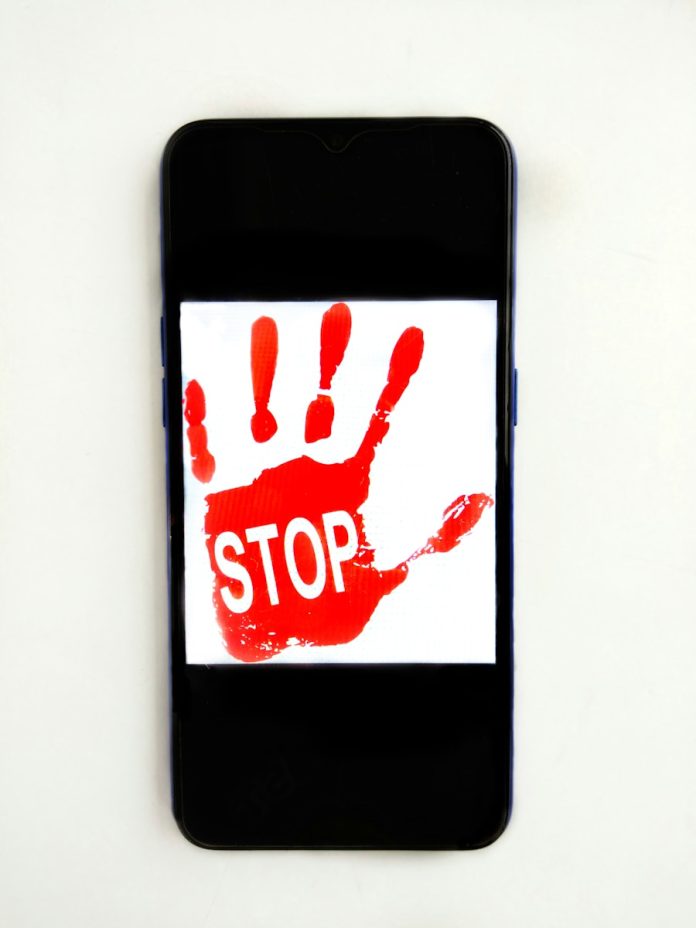In today’s digital age, our phones have become more than just tools for communication. They’re now integral parts of our daily lives—serving as social hubs, entertainment sources, productivity enhancers, and even extensions of our identities. Yet, as we become increasingly connected to our devices, we may inadvertently lose touch with the present moment. The constant buzz of notifications, the allure of social media, and the temptation to check emails or news updates can distract us from the world around us, affecting our relationships, mental well-being, and overall quality of life.
The phrase “Be here now” has become a mantra for many who seek to cultivate mindfulness and presence in their lives. It calls on individuals to focus on the present moment instead of getting lost in distractions, whether they are external or internal. One of the most pressing distractions in our modern world is our smartphones. Despite the many conveniences they provide, the overuse of phones can come at the expense of our ability to truly engage with our surroundings. This essay will explore the negative impact of excessive phone use on our daily lives and argue the case for putting our phones away to be more present, more engaged, and ultimately, more connected with ourselves and others.
The Rise of the Smartphone Era
The advent of smartphones has fundamentally transformed how we interact with the world. In the early days of mobile phones, the devices served a single purpose: making calls. However, as technology advanced, these devices became multifaceted, offering a wide range of services that went beyond communication. Smartphones now offer instant access to the internet, social media, entertainment platforms, email, navigation, and much more.
While these advances have undoubtedly brought about positive changes, they have also created an environment where we are constantly plugged in. We no longer need to wait for a time and place to check in with friends, respond to work emails, or watch a quick video. Everything is available at our fingertips, 24/7. This constant connectivity has blurred the lines between work and personal life, and between being “on” and being “off.” It can be difficult to disconnect, even when we want or need to.
In fact, according to a study by Deloitte, 84% of smartphone users check their phone within 10 minutes of waking up. This constant attention to our phones often extends throughout the day, leaving little room for true moments of quiet reflection or uninterrupted connection with others.
The Dangers of Distraction: Missing Life’s Precious Moments
The most obvious consequence of smartphone overuse is distraction. It’s easy to fall into the trap of constantly checking your phone, even when you’re engaged in face-to-face interactions. How many times have you been having a conversation with someone only to notice their gaze shift to their phone mid-sentence? It’s almost as if the digital world has become more captivating than the present moment. The temptation to check your device, even for just a second, often leads to a fractured conversation or the feeling that you’re not truly being heard.
This phenomenon, often referred to as “phubbing” (phone snubbing), not only affects relationships but also contributes to a sense of loneliness and disconnection. A study conducted by the University of Essex found that people who engage in “phubbing” are more likely to report feeling dissatisfied in their relationships. When we give our phones more attention than the people in front of us, we send the message that they are not a priority.
The constant distractions also prevent us from fully experiencing moments that could otherwise be cherished. Think of the last time you went to a concert or visited a beautiful place, only to find that everyone around you was glued to their phones, capturing pictures or recording videos rather than immersing themselves in the experience. While capturing memories through photos and videos is a common practice, it can detract from our ability to live in the moment and fully appreciate the beauty around us.
Moreover, the overuse of smartphones can lead to an unhealthy sense of FOMO (fear of missing out), where people feel they are missing out on something more exciting or interesting happening elsewhere. This constant comparison to others can make it difficult to be content with our present circumstances.
The Impact on Mental Health: Stress, Anxiety, and Burnout
The addictive nature of smartphones also plays a significant role in the deterioration of mental health. Social media platforms, in particular, are designed to capture our attention and keep us scrolling. The likes, comments, and shares we receive provide a temporary boost to our self-esteem, creating a cycle of dependence on validation from others. This cycle can be mentally exhausting, leading to anxiety, stress, and burnout.
Research has shown that excessive social media use is linked to increased rates of anxiety and depression. According to a study published in the Journal of Social and Clinical Psychology, participants who limited their social media use to 30 minutes per day reported significant improvements in well-being, including reductions in depression and loneliness. The constant barrage of notifications, comparisons, and news updates can contribute to heightened feelings of stress, leaving us overwhelmed and mentally drained.
The pressure to keep up with an idealized version of other people’s lives, whether it’s through curated photos, success stories, or constant updates, can make it difficult to appreciate our own lives. When we’re constantly comparing ourselves to others, we are less likely to appreciate what we already have and be grateful for our current circumstances.
The Benefits of Disconnecting: Being Present in the Moment
In light of the challenges posed by smartphones, it’s important to recognize the benefits of disconnecting and focusing on the present moment. Mindfulness, which involves paying full attention to the here and now, can improve emotional well-being, reduce stress, and strengthen relationships. When we put our phones away, we allow ourselves the space to engage fully in what’s happening in our lives.
Spending time away from screens can foster deeper connections with those around us. Whether it’s sharing a meal with family, engaging in meaningful conversations, or simply enjoying a walk in nature, being present allows us to cultivate stronger, more authentic relationships. Research has shown that strong social connections are one of the key predictors of happiness and longevity. By disconnecting from our devices, we allow ourselves the opportunity to foster these connections.
Additionally, taking time away from screens can help us engage in more creative and fulfilling activities. Without the constant distractions of notifications, we have the mental space to focus on our hobbies, personal growth, and self-care. Whether it’s reading a book, exercising, or pursuing a creative project, these activities nourish our minds and bodies in ways that mindless scrolling cannot.
Strategies for Putting Your Phone Away
If you’re ready to take the first step toward disconnecting, there are several strategies you can implement to reduce your reliance on your phone.
Set Boundaries: Designate specific times during the day to check your phone, such as after meals or before bedtime. Try to avoid checking your phone first thing in the morning or right before you go to sleep. Establishing these boundaries can help reduce the impulse to check your phone throughout the day.
Turn Off Notifications: Constant notifications can be a major source of distraction. Consider turning off non-essential notifications, such as those from social media or marketing emails. By doing so, you’ll be less likely to get distracted by the ping of a new message or update.
Create Phone-Free Zones: Designate certain spaces in your home, such as the dining room or bedroom, as phone-free zones. This encourages quality time with others and allows you to be present in your surroundings.
Practice Mindfulness: Engage in activities that promote mindfulness, such as meditation, journaling, or yoga. These practices can help you tune in to the present moment and reduce your dependence on your phone for entertainment or distraction.
Set Screen Time Limits: Most smartphones have built-in tools that allow you to set limits on app usage. Use these tools to restrict your screen time and ensure that you’re not mindlessly scrolling for hours on end.


